7 Big Signs of Foundation Problems
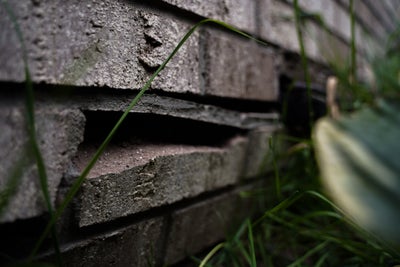
Are you noticing signs that something might be wrong with your home? You’re not alone! Many homeowners overlook subtle clues of foundation issues. From mysterious cracks to doors that won’t close properly, your home has ways of signaling for help.
1. Cracks in Drywall
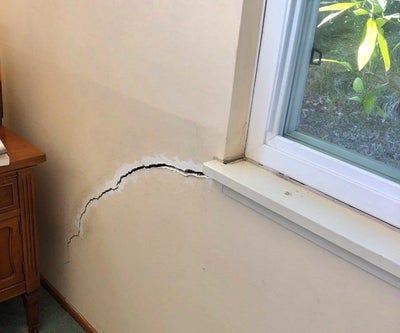
Horizontal, vertical, diagonal, or stair-step cracks in your drywall, especially around window and door frames, are among the most common signs of foundation damage.
2. Sticking Doors and Windows
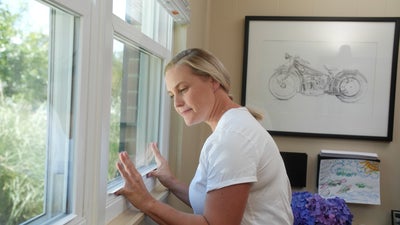
If your doors and windows are hard to open or close, or if they’re misaligned within their frames, it could be a sign of foundation damage.
3. Gaps Between Floors and Walls
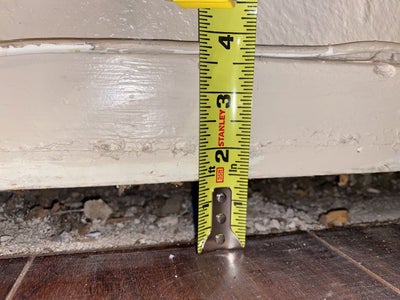
Gaps between floors, walls, doors, or windows can indicate foundation settlement or movement. These gaps are signs that your foundation is settling unevenly.
4. Sagging or Uneven Floors
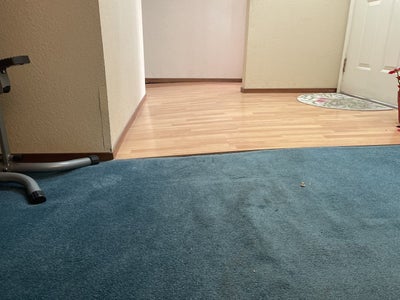
Sagging, slanting, bouncy, and uneven floors often point to failing structural supports beneath your home, usually due to moisture, mold, wood rot, or unstable soil.
5. Leaning or Cracked Chimney
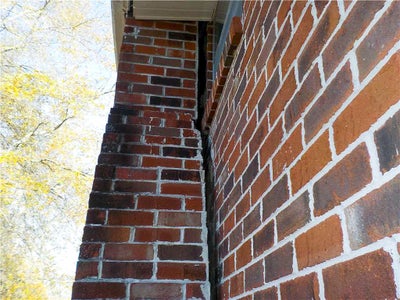
A leaning, cracking, or separating chimney may suggest unstable or shifting soil beneath the foundation, which needs immediate attention.
6. Bowing Basement Walls
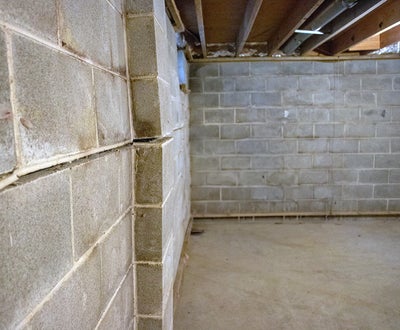
Basement walls that buckle inward due to hydrostatic pressure from surrounding soil can cause significant foundation damage and make your entire home less safe.
7. Mold & Musty Smells
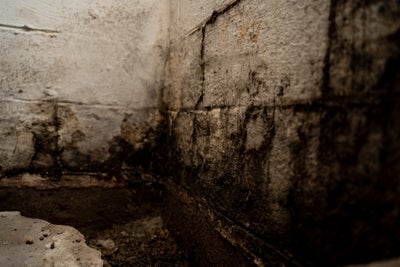
Mold growth and musty smells in your basement or crawl space often result from moisture or water infiltration due to a damaged foundation.
Causes of Foundation Problems
Several factors contribute to foundation problems, including inadequate soil compaction during construction, soil expansion and contraction due to weather changes, and water damage. Tree roots growing too close to the home, hydrostatic pressure, and poor exterior drainage can also lead to foundation issues.
How to Fix Foundation Problems
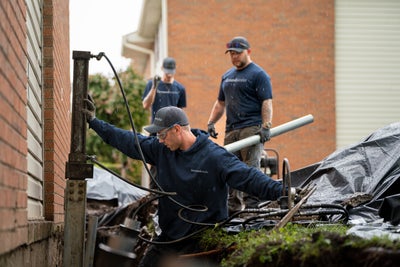
Understanding the signs of foundation problems is just the first step. Next is the repair process.
Foundation repair is not a DIY project. It requires professional assessment and tailored solutions. Groundworks offers various repair options:
- Carbon Fiber Straps: These are applied to cracked or bowing basement walls to reinforce them and prevent further movement.
- Wall Repair System: Our IntelliBrace™ system helps straighten inward-bowing walls without exterior excavation.
- Wall Anchors: These stabilize bowing foundation walls by counteracting hydrostatic pressure with tension rods.
- Crawl Space Support Jacks: IntelliJack™ crawl space jacks reinforce and lift floors above the crawl space.
- Foundation Piers: Helical piers, push piers, and slab piers stabilize and (potentially, but not guaranteed) lift your foundations to it original position
Why Foundation Repair is Important
Ignoring foundation problems can lead to more serious damage over time. Cracks will get bigger, settlement will become more severe, and uneven floors will become worse. Repairing foundations damage as soon as possible is better for your home and safety in the long run.
Trust Groundworks to Inspect and Repair Your Foundation
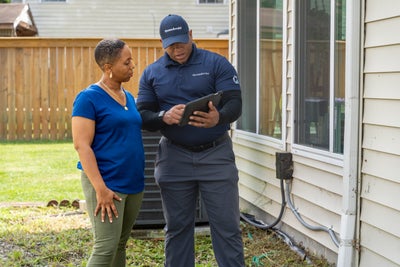
Foundation problems require a tailored repair strategy. Entrusting these repairs to Groundworks professionals ensures a safe living environment.
Our team understands that your home is more than just a house and promises superior service and solutions. Book a free inspection today and let Groundworks help keep your home safe and stable for years to come.
Foundation Problems FAQs
Selling a home with foundation problems is possible, but you usually have to disclose the issues to potential buyers (which may lead to a lower sale price). Repairing the foundation before selling tends to get you a better price.
Poor drainage can lead to water accumulation around the foundation, causing soil expansion and contraction. Over time, this can weaken the foundation and lead to cracks and other structural issues.
No, foundation problems can occur in both older and newer homes. However, older homes may be at higher risk due to wear and tear over time. Ultimately, the type of foundation and soil conditions on your property play the biggest role.